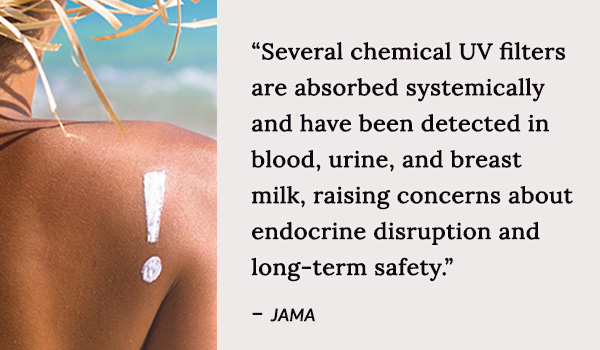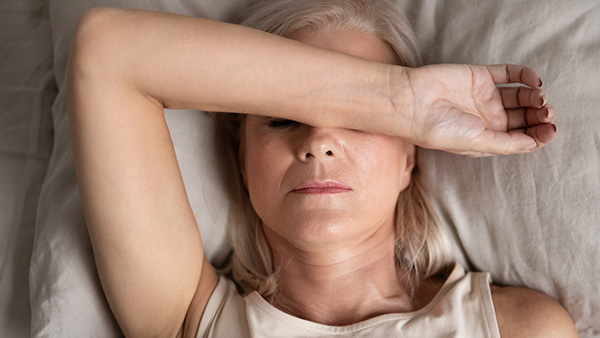By Dr. Sharon Stills, NMD
It’s officially beach and picnic season! Before you head out for some fun in the sun, however, take a minute to read the active ingredients list on your bottle of sunscreen.
Studies have shown that many ingredients found in conventional sunscreen are absorbed directly into the bloodstream — including toxic chemicals known to disrupt hormones.
Could your sunscreen be putting your hormones at risk? Check to make sure your favorite sunscreen is free of these top offenders:

4 sunscreen ingredients to avoid
Oxybenzone — filters UV rays from the sun, but in the body, can mimic estrogen, interfere with testosterone production and disrupt adrenal hormones. The Environmental Working Group recommends avoiding sunscreens that contain oxybenzone.
Octinoxate — the most widely used UVB-absorbing agent in sunscreen today, octinoxate produces estrogen-like activity and may also target thyroid function. Octinoxate is readily absorbed by the body and has even been detected in human breastmilk.
Homosalate — is another common UVB-absorbing chemical that acts as an estrogen in the body. Do you slather on sunscreen and douse yourself in bug spray at the same time? Studies show that homosalate increases the amount of pesticides we absorb through the skin — allowing in even more toxins.
Parabens — are endocrine-disrupting synthetic preservatives found in cosmetics and body care products, including conventional sunscreens. Parabens can be tricky to find on labels. Look for ingredient names like methylparaben, propylparaben, isoparaben or butylparaben.
If you need to find less toxic protection from the sun, look for formulas that list zinc oxide or titanium dioxide as the active ingredients. Both of these sit on top of the skin with little to no absorption. (They work by blocking the sun rays, not absorbing them.)
Another tip? Stick to creamy sun lotions. Spray sunscreens are often inhaled during application — increasing absorption of whatever ingredients are in the bottle.
Source: Environmental Working Group








